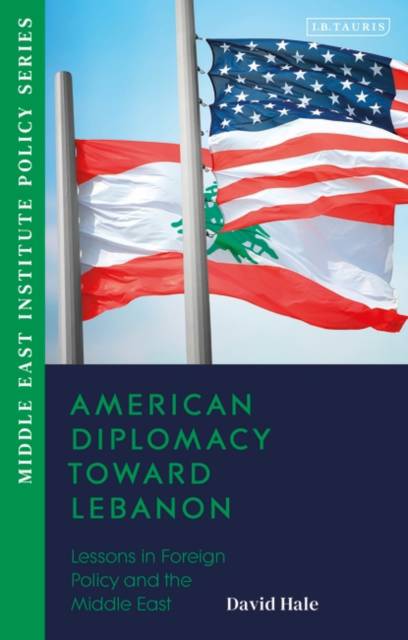
- Afhalen na 1 uur in een winkel met voorraad
- Gratis thuislevering in België vanaf € 30
- Ruim aanbod met 7 miljoen producten
- Afhalen na 1 uur in een winkel met voorraad
- Gratis thuislevering in België vanaf € 30
- Ruim aanbod met 7 miljoen producten
Zoeken
€ 47,45
+ 94 punten
Uitvoering
Omschrijving
Lebanon's significance to the Middle East and the global arena is greater than its small size suggests - bordering Israel and Syria, it holds a geo-strategic role as the playing field for their competition as well as for their allies, America and Iran. This book examines how American diplomacy has responded to the intersection of local, regional, and international factors in Lebanon.
David Hale examines several key episodes in US diplomatic history with Lebanon, starting with the country's independence in 1943, up until the present moment. Crucial events such as the Lebanese Civil War, the Cedar Revolution, and more recently the spillover from the Syrian Civil War, are examined within the context of the respective US government administrations of the time and their foreign policy strategies. Hale asks whether policy-makers had realistic and compelling goals, the right strategy, sufficient means, and capable diplomats in its diplomatic approaches towards Lebanon through the years.
Crucially, this study focuses on how, during these critical periods, American diplomacy toward Lebanon had consequences beyond the country itself, and on the narrative lines and lessons for the broader conduct of American foreign policy.
David Hale examines several key episodes in US diplomatic history with Lebanon, starting with the country's independence in 1943, up until the present moment. Crucial events such as the Lebanese Civil War, the Cedar Revolution, and more recently the spillover from the Syrian Civil War, are examined within the context of the respective US government administrations of the time and their foreign policy strategies. Hale asks whether policy-makers had realistic and compelling goals, the right strategy, sufficient means, and capable diplomats in its diplomatic approaches towards Lebanon through the years.
Crucially, this study focuses on how, during these critical periods, American diplomacy toward Lebanon had consequences beyond the country itself, and on the narrative lines and lessons for the broader conduct of American foreign policy.
Specificaties
Betrokkenen
- Auteur(s):
- Uitgeverij:
Inhoud
- Aantal bladzijden:
- 280
- Taal:
- Engels
- Reeks:
Eigenschappen
- Productcode (EAN):
- 9780755652228
- Verschijningsdatum:
- 8/02/2024
- Uitvoering:
- Paperback
- Formaat:
- Trade paperback (VS)
- Afmetingen:
- 140 mm x 216 mm
- Gewicht:
- 344 g

Alleen bij Standaard Boekhandel
+ 94 punten op je klantenkaart van Standaard Boekhandel
Beoordelingen
We publiceren alleen reviews die voldoen aan de voorwaarden voor reviews. Bekijk onze voorwaarden voor reviews.







